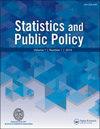How do Test Scores at the Ceiling Affect Value-Added Estimates?
IF 1.5
Q2 SOCIAL SCIENCES, MATHEMATICAL METHODS
引用次数: 8
Abstract
ABSTRACT Some educators are concerned that students with test scores at top of the test score distribution will negatively affect the value-added estimates of teachers of those students. A conventional wisdom has sprung up suggesting that students with very high test scores have “no room to grow,” so value-added estimates for teachers with high-performing students will be depressed even for highly effective teachers. Using empirical data, we show that under normal circumstances, in which few students score at the ceiling, a teacher of high-performing students—even with many students scoring at the ceiling on the pre-test—can have a high value-added estimate. To understand how more extreme ceiling effects can change value-added estimates, we simulate a low ceiling, causing student test achievement data of high-scoring students to become less precise when a single score represents a large range of possible achievement. We find that the problem of test score ceilings for an evaluation system is not that it pushes the value added of every teacher of high-achieving students toward the bottom of the distribution of teachers, but rather shrinks it toward the middle.最高测试分数如何影响增值估计?
摘要一些教育工作者担心,考试成绩在考试成绩分布中名列前茅的学生会对教师对这些学生的增值估计产生负面影响。一种传统观点认为,考试成绩很高的学生“没有成长的空间”,因此,即使是高效的教师,对成绩优异的教师的增值估计也会降低。使用实证数据,我们表明,在很少有学生达到最高分数的正常情况下,一个表现优异的学生的老师——即使有很多学生在预考中达到了最高分数——也可以做出高附加值的估计。为了了解更极端的上限效应如何改变增值估计,我们模拟了一个低上限,当一个分数代表一个大范围的可能成绩时,导致高分学生的学生测试成绩数据变得不那么精确。我们发现,评估系统的考试分数上限问题并不在于它将每一位成绩优异的学生的教师的附加值推向教师分布的底部,而是将其缩小到中间。
本文章由计算机程序翻译,如有差异,请以英文原文为准。
求助全文
约1分钟内获得全文
求助全文
来源期刊

Statistics and Public Policy
SOCIAL SCIENCES, MATHEMATICAL METHODS-
CiteScore
3.20
自引率
6.20%
发文量
13
审稿时长
32 weeks
 求助内容:
求助内容: 应助结果提醒方式:
应助结果提醒方式:


